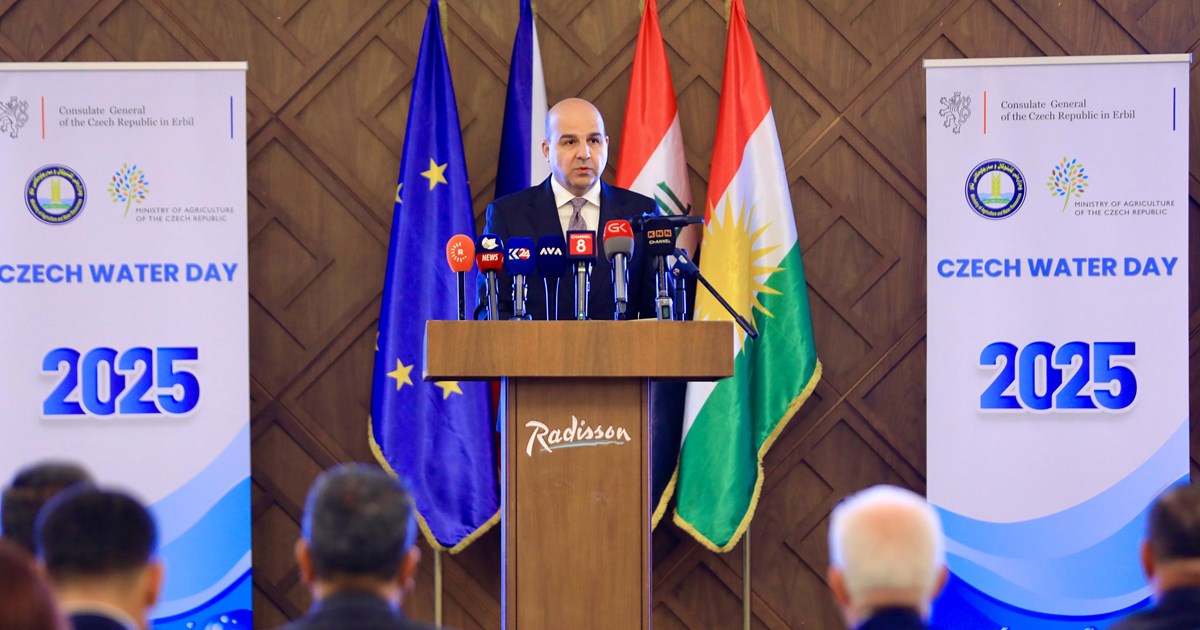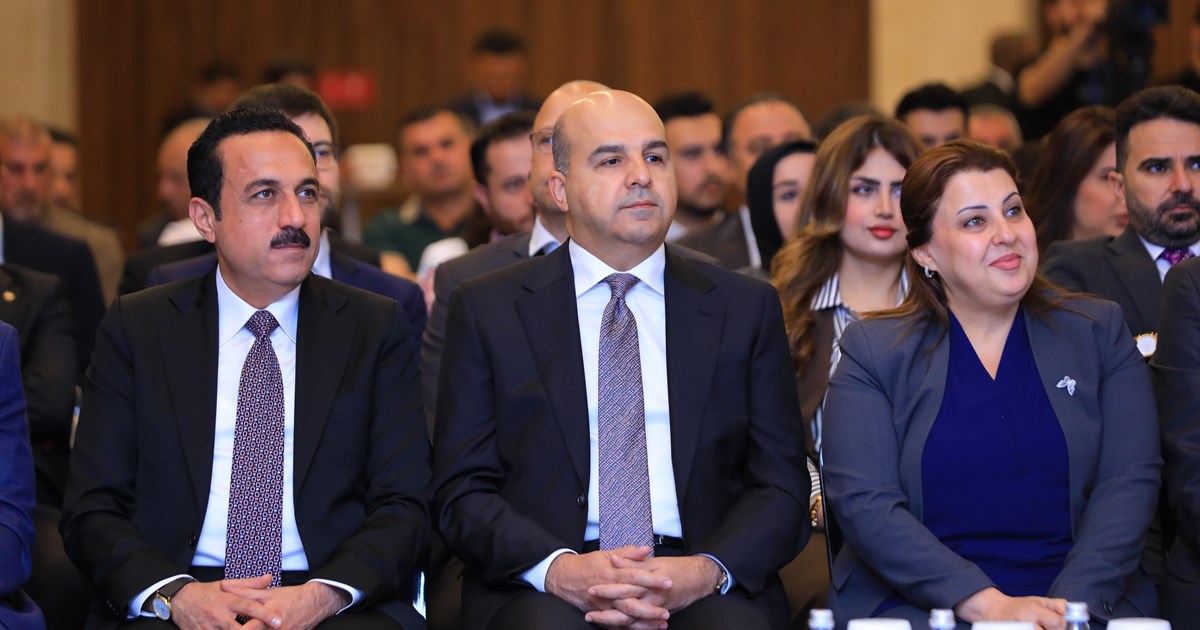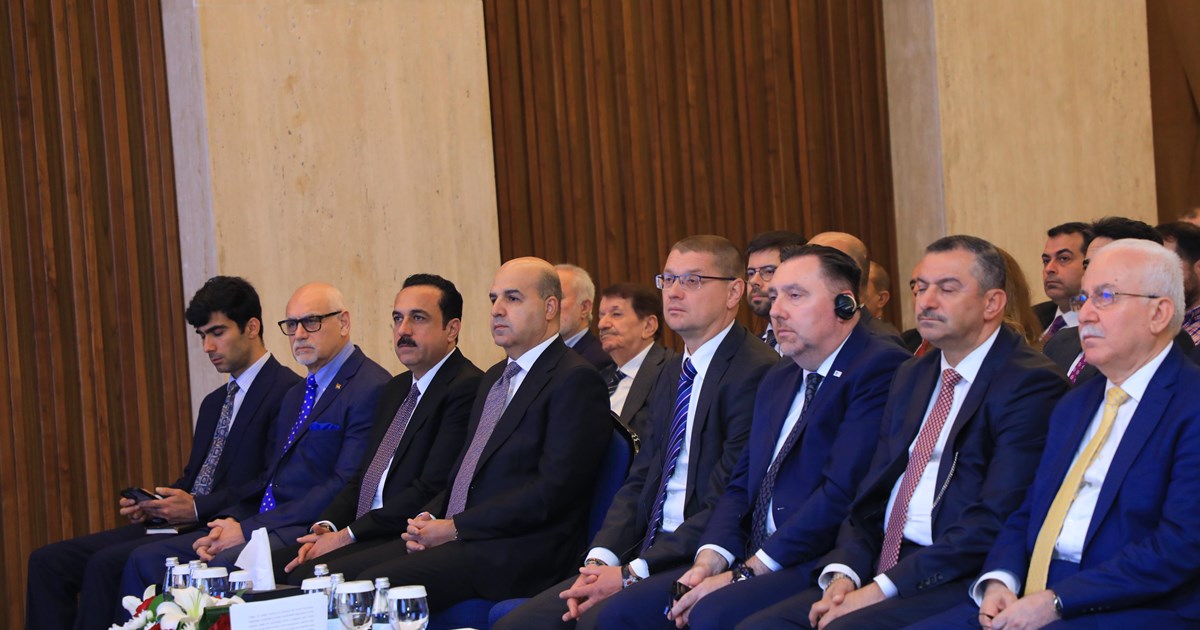KRG Minister of Municipalities and Tourism Announces Completion of First Phase of Erbil Water Supply Project Within Three Months

On Tuesday, 13 May 2025, the "Czech Republic’s Water Day" ceremony was held with the participation of Sasan Awni, Minister of Municipalities and Tourism of the Kurdistan Regional Government (KRG); Mr. Karel Kortanek, Consul General of the Czech Republic in the Kurdistan Region, and representatives from several Czech water companies.
During the event, Minister Awni highlighted that the Kurdistan Region is rich in water and other natural resources, and emphasised that Prime Minister Masrour Barzani has a strategic vision aimed at ensuring access to clean drinking water. He noted that significant progress has been achieved in the water sector, including the construction of ponds, dams, and other strategic water production projects.
Among the most notable accomplishments is the completion of 70% of the Erbil Water Supply Emergency Project. Awni confirmed that the first phase of this project is expected to be completed within the next three months.
Awni also announced that other major projects such as the Qushtapa Water Project and the Goptapa-Chamchamal and Akre water projects are nearing completion. Additionally, work is ongoing on 51 village water projects in Barzan, as well as the Darbandikhan and Dukan-Slemani water projects, along the construction and rehabilitation of multiple water distribution networks.
Despite ongoing financial challenges, Minister Awni stated that the annual cost of drinking water production in the Region stands at IQD 158 billion. He also noted that 120,000 water quality tests (chemical, physical, and biological) are conducted each year to ensure compliance with safety standards. He reassured the public that that the water production situation in Kurdistan has significantly improved.
Finally, Awni reiterated the Ministry’s plan to reduce reliance on groundwater by shifting entirely to surface water sources. The Erbil and Qushtapa projects are central to this strategy, as they will enable the closure of more than 1,000 groundwater wells.


